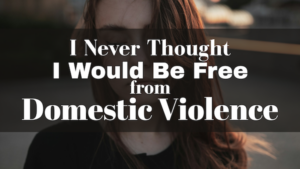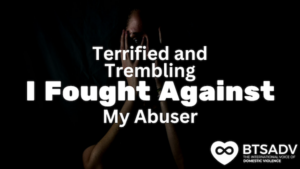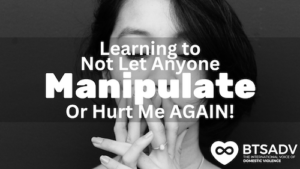By Jill Crowner
Survivors are often asked why they didn’t “just call the police” when faced with domestic violence. The answer to this question is complicated and varies from case to case. Abusers frequently use fear and manipulation to maintain control over the person they are abusing. Survivors are told that calling the police won’t help them, or that they will only get themselves in trouble. The fear and shame that accompany domestic violence make it difficult for survivors to ask for the help they so desperately need. They are often afraid they will be blamed for the abuse or judged for not leaving their abuser. Survivors are routinely isolated by their abuser and made to feel as if they have no options or ways in which to get help.
These feelings of fear and shame are often reinforced by the police if the survivor does decide to make the call. A report by the ACLU, discusses how survivors face widespread police discrimination when seeking help from the criminal justice system. The report goes on to talk about the bias, inaction and hostility police often display in responding to reports of domestic violence. Most survivors, if they do call the police, report that they wouldn’t call them a second time. Often the welfare of their children is threatened, with police telling them that the children will be taken into protective custody. As abusers often use children to maintain control over the abused, this can be terrifying. Survivors are often fearful for the safety and well-being of their children. When the police threaten to have the children removed from the home, it closely mirrors the fear the survivor has already been facing at the hands of their abuser.
Survivors have reported instances of being blamed and belittled by police when trying to get help. Police bias is especially high with marginalized groups such as people of color, immigrants, women, and within impoverished neighborhoods. Survivors are often threatened with collateral consequences when reaching out to police for help. Police will threaten the initiation of immigration proceedings, loss of welfare benefits, and the involvement of child protective services, among other things. This type of behavior from the police makes survivors feel unsafe when reaching out for help.
The advocacy of stricter police training when it comes to responding to domestic violence calls needs to be addressed. Police accountability and supervision are important for improving the survivor’s experience when reaching out for help from law enforcement. Education regarding the removal of bias toward marginalized groups is imperative in ensuring that survivors are protected by the police. Police training needs to include prioritizing domestic violence and assault cases.
Survivors who are wary of involving law enforcement should know that they have other options when it comes to getting help. Reaching out to a local domestic violence agency is a safe and effective way to get help and advice about how to leave an abusive situation. There are advocates who are there to help survivors learn their options and to find help in a way that is most comfortable. Working with an advocate can be a good way to get help navigating different legal systems in a non-traumatic fashion. Advocates are trained to help survivors while making the experience as safe and comfortable as possible. They can be a buffer when it comes to dealing with law enforcement, especially if the survivor is uncomfortable dealing with the police on their own.
Survivors’ sense of safety is the most important thing when trying to remove themselves from an abusive situation. It is important to remember that it is the survivor’s choice of whether to involve the police or not. No matter how a survivor decides to get help or get out of an abusive relationship, the important thing is that they are reaching out. Whether through law enforcement, a domestic violence advocate, or any other option, survivors should be met with support, love, and safety.
If you or someone you know is in an abusive relationship, there is help. You can visit the Break the Silence website at www.breakthesilencedv.org or chat with one of our helpline advocates at 855-287-1777.









